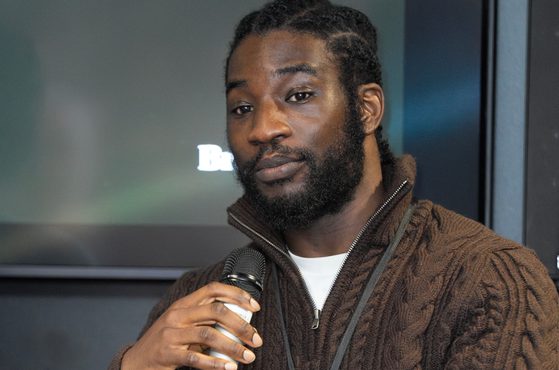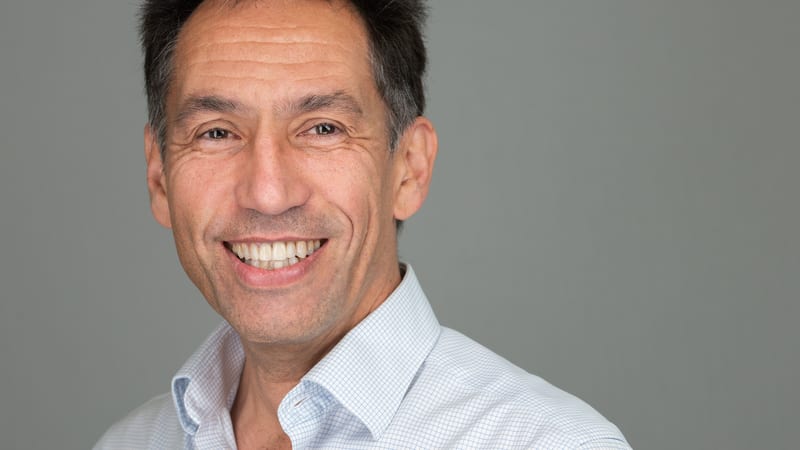True North: Northern Star — Samuel Remi-Akinwale

Samuel Remi-Akinwale is the CEO of Young Manchester, a youth-led partnership organisation that champions opportunities for young people across the city.
Read more
We make the difference. Talk to us: 0333 004 4488 | hello@brabners.com
5 min read

Professor David Lalloo, Vice-Chancellor, LSTM
The mission of Liverpool School of Tropical Medicine (LSTM) is to improve health outcomes for less economically developed populations globally, as well as underserved communities in the UK. Through research, education and partnership, LSTM is focused on understanding and improving interventions that can enhance public health.
We spoke to LSTM’s Vice-Chancellor, Professor David Lalloo, to find out more.
Our research at home and abroad is focused on understanding and improving interventions that can enhance public health — whether through drugs, vaccines or behavioural strategies. It’s not just about developing new treatments but also ensuring that those treatments reach the people who need them most.
That's why, since I became Vice-Chancellor, I've pushed to deepen our domestic focus alongside our international work. Our years of experience working in global settings have given us tools and insights that can be incredibly useful for tackling health inequality in the UK, learning from the well-organised, resource-efficient systems that operate in other parts of the world.
A powerful example of this was in Liverpool, during the COVID-19 pandemic, where underserved communities were often less likely to be vaccinated. To respond, we built networks of community mobilisers to better understand and address concerns.
That approach was rooted in learnings from our model overseas, particularly where small, rural villages are often disconnected from major cities, leading not only to a lack of access to basic health facilities but a lack of education. We partner with community organisations — local health bodies, NGOs and academic institutions — to educate and increase access to basic resources: clean water, maternal and antenatal care and vaccinations.
While we can take lessons from one community and apply them elsewhere, there’s no one-size-fits-all model for public health interventions. We need to take a place-based approach, rooted in deep, sustained and trusting relationships, because real change only happens when you understand a community’s needs, fears and priorities, and work with them.
We believe that data offers exciting opportunities in this space. For example, local work has been undertaken to explore how poor housing conditions correlate with lung disease and how targeted housing interventions might improve health outcomes. Or take infectious disease outbreaks — if we can map where people aren’t being vaccinated and cross-reference that with early signs of outbreaks, we can deploy resources far more quickly and effectively.
What became more apparent during the pandemic was that when a health crisis breaks out in one part of the world, it isn't necessarily isolated there. It’s more important than ever to articulate the value of global health research — not just morally but in terms of our national interest. How many times have headlines at home been filled with concerns about rare tropical diseases reaching the UK? It's the infrastructure and expertise built up in low-middle income countries — alongside accurate data — that gives us the capacity to respond effectively.
This sort of work can't afford to stop. If we want to improve global health in a sustainable, long-lasting way, we need to inspire and train the next generation of health researchers and professionals. For LSTM, that means engaging young people here in the North West who may not have considered a career in science or global health.
We work with local schools and organisations to raise aspirations and show students what this pathway can look like, specifically focusing on people from diverse backgrounds. That makes us stronger and more effective as an organisation, while also helping us to understand specific health concerns in a wider range of communities.
Yet our contribution to the region’s economy isn't just through jobs and education but through driving a sector — life sciences — that has rightly been prioritised for growth through the Liverpool City Region Investment Zone, which we're deeply involved with.
That new investment enables us to enhance our facilities, including cutting-edge research labs and modern digital learning environments. We're particularly excited about new AI-powered robotic laboratories that will accelerate the safe development and adoption of new vaccines, drugs and diagnostics for high-risk infections.
Innovation is central to everything we do and at LSTM. One of our strengths is that we span the full pipeline — from discovery science all the way through to implementation. We can take a new drug or vaccine from the lab bench, test it in real-world conditions, and help ensure it’s used effectively within communities. Technologies like near-to-patient testing (think of those COVID lateral flow tests) and AI-powered diagnostics are helping us shorten the gap between idea and impact. That’s incredibly exciting and it holds huge potential for how we manage diseases both globally and locally.

Samuel Remi-Akinwale is the CEO of Young Manchester, a youth-led partnership organisation that champions opportunities for young people across the city.
Read more

We’re delighted to announce the opening of a new office in London, marking a major milestone at the end of a year defined by strong financial performance.
Read more

We explore the challenges and opportunities that Southport faces and outline how we can build a lasting legacy that other places can learn from.
Read more